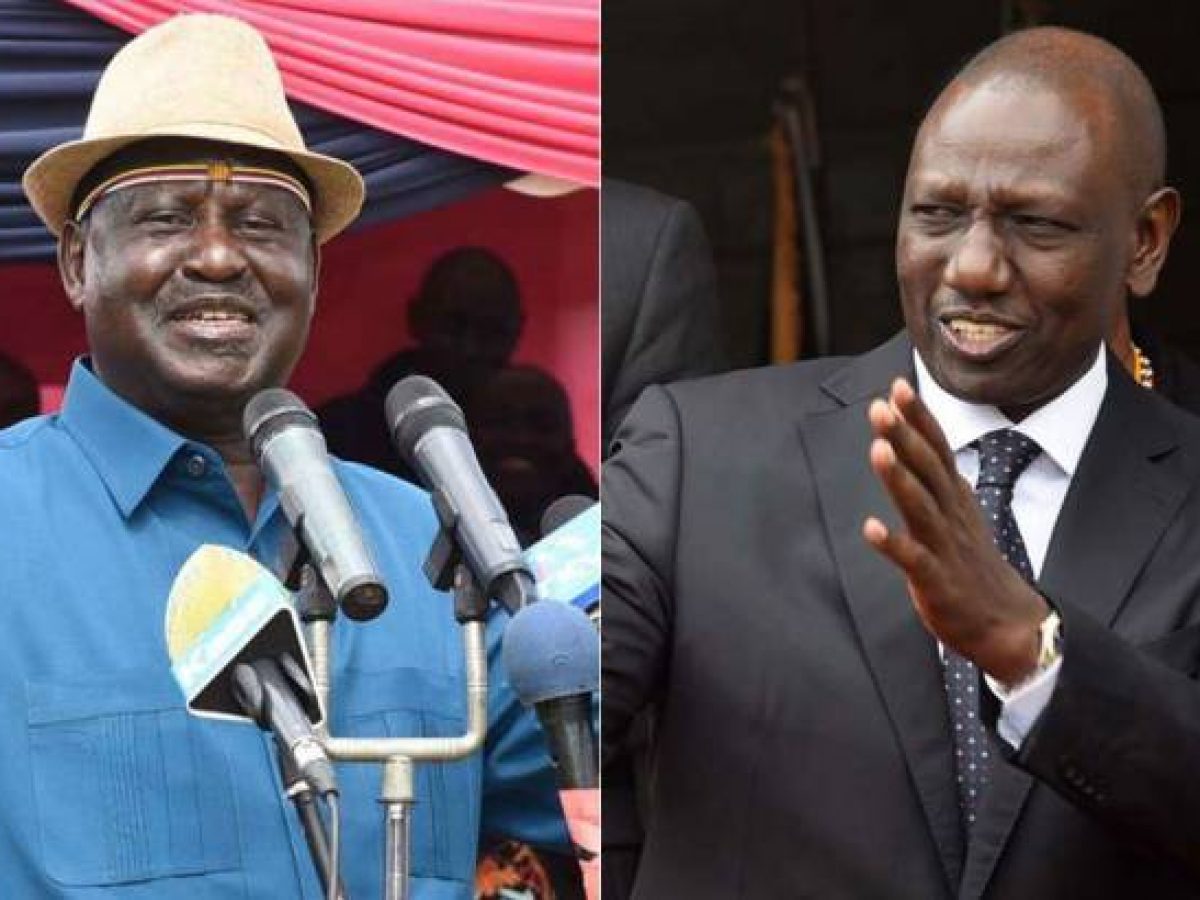
Flanked by cheering crowds, the frontrunners in Kenya’s presidential election sought to make their final push for votes Saturday under tight security, capping months of frenetic campaigning ahead of the August 9 polls.
Previous polls have been marred by violence and continue to cast a dark shadow over the country, where 22.1 million voters will now choose the next president, as well as senators, governors, lawmakers, women representatives and some 1,500 county officials.
The battle for votes has been dominated by mud-slinging, tit-for-tat claims of rigging and a freebie bonanza for supporters, who have been showered with umbrellas, groceries and cash for attending rallies.
After criss-crossing the vast country in recent months, the two candidates staged their final offensive in the capital Nairobi, with Ruto holding a rally at the 30,000-seat Nyayo National Stadium and Odinga campaigning at Kasarani Stadium, which seats 60,000. Lawyers David Mwaure and George Wajackoyah — an eccentric former spy who wants to legalise marijuana — are also in the fray.
The bitterly fought race has sparked speculation Kenya may see its first presidential run-off, with many worried that a challenge to the result could lead to street violence.
Close race
A wealthy businessman with a rags-to-riches background and a shadowy reputation, Ruto, 55, was long expected to be President Uhuru Kenyatta’s successor, but lost ground when his boss — who cannot run again — joined hands with longtime rival Odinga in 2018.
Kenyatta’s endorsement has given Odinga, 77, access to the ruling Jubilee party’s powerful election machinery, but has also dealt a blow to the former political prisoner’s anti-establishment credentials.
Nevertheless, some analysts believe that Odinga will emerge the winner in a close race, with Oxford Economics highlighting the fact that he has the backing of « several influential political leaders », including Kenyatta.
Ruto has cast himself as « hustler-in-chief », taking aim at the « dynasties » running Kenya — a reference to the Kenyatta and Odinga families, who gave the country its first president and vice-president.
He has promised to establish a « bottom-up » economy in a nation where three in 10 people live on less than $1.90 a day, according to the World Bank.
Odinga, meanwhile, has made the fight against corruption a key plank of his campaign, pointing out that Ruto’s running mate is fighting a graft case.
Evance Odawo, a 23-year-old tailor attending Odinga’s rally, told AFP: « We expect from the next president that the economy improves and the living standards, too. »
« There’s no work. We don’t have a job. We are the hustlers, » said Grace Kawira, an unemployed mother-of-two, who was waiting for Ruto’s arrival. « We are just surviving, » she told AFP, echoing concerns shared by many across Kenya.
New chapter
The election will open a new chapter in Kenya’s history, with neither candidate belonging to the dominant Kikuyu tribe, which has produced three of the country’s four presidents.
During Kenyan President Uhuru Kenyatta’s time in office, the precentage of Kenyans who are connected to the country’s electrical grid has more than doubled.
During Kenyan President Uhuru Kenyatta’s time in office, the precentage of Kenyans who are connected to the country’s electrical grid has more than doubled. © France 24 screengrab
Both men have sought to appeal to the Kikuyu, who account for roughly six million votes, but analysts say the economic crisis will likely compete with tribal allegiances as a key factor driving voter behaviour.
With large ethnic voting blocs, Kenya has long suffered politically motivated communal violence around election time, notably after a disputed poll in 2007 when more than 1,100 people died, scarring the nation’s psyche.
The run-up to this year’s poll has been largely calm, with the police planning to deploy 150,000 officers on election day to ensure security and the international community calling for a peaceful vote.
Since 2002, every Kenyan presidential poll has been followed by a dispute over results. The Supreme Court annulled the 2017 election due to widespread irregularities in the counting process and mismanagement by the Independent Electoral and Boundaries Commission.
The IEBC, which is under pressure to ensure a free and fair poll, insists it has taken all necessary precautions to prevent fraud, with Kenyans hoping for a peaceful vote.
« I want (the politicians) to accept the election so the country can continue in peace, » said 32-year-old Kawi
Subscribe to view notification of our daily news
RwandaPodium © All Rights Reserved. Powered by thesublime.rw